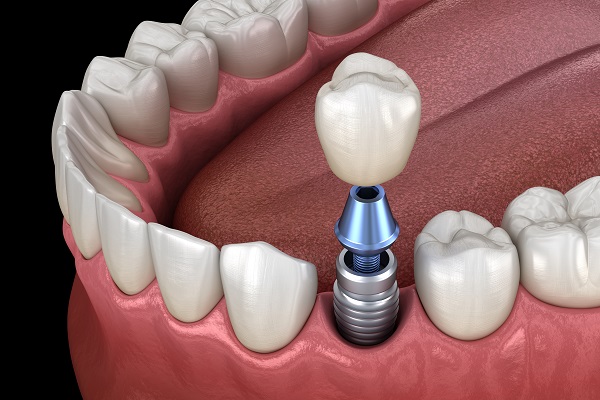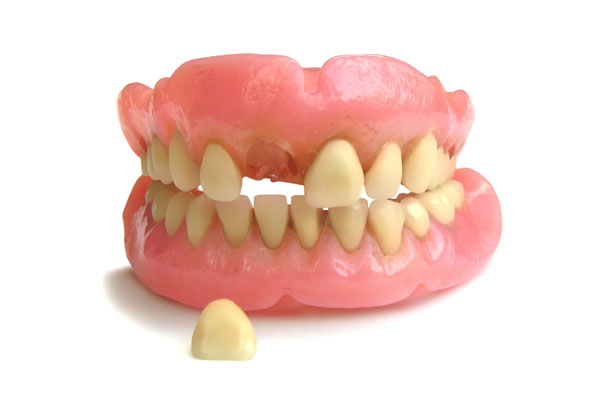Advice for Implant Crown Aftercare

The success of an implant crown has much to do with the recovery period. As you heal from the procedure, you need to take excellent care of the surgical site where the implant sits. These sections go over the different aspects of after-care after a dental implant procedure.
How a dentist fits an implant crown: A short description
Installing a dental implant and the restoration that it anchors requires at least one minor oral surgery. Depending on a patient’s situation, a dentist will oversee one or more of the following steps:
- A comprehensive dental exam will inform the dentist of the best way to restore the patient’s smile
- They will discuss different treatment options with the patient, detailing the pros and cons of each one
- If both dentist and patient agree on an implant-supported crown, the dentist will oversee a bone graft if the patient needs one
- The dentist will then take their patient through the fitting of a dental implant and connector
- The dentist will load the implant with a dental crown
Each step can be a standalone procedure, or the dentist can combine multiple procedures into one. In the case of same-day implant crowns, the dentist will complete the treatment in a single session. Each approach has its upsides and drawbacks, information that the dentist will present before they start treatment. Here is how the patient plays their part during the recovery period.
1. Oral hygiene during the recovery period
Good oral habits normally prevent bacteria from attacking the teeth and gums. The stakes are much higher when a person has a surgical site that needs to heal. Good oral hygiene goes a long way toward preventing infection after an implant crown procedure.
Brush the teeth very gently with lukewarm water and a soft toothbrush. The point is to avoid irritating the area that holds the dental implant. A saltwater rinse after brushing also helps, working to reduce swelling and speeding up the healing process. Dentists will send their patients home with detailed instructions on cleaning the mouth in the days following the procedure.
2. Diet during the recovery period
The goal is to be gentle with the section of gum that holds the dental implant. Prepare soft foods to eat, like pudding, mashed potatoes, and ground meat, that require minimal chewing. Remember to still choose healthy, nutritious foods that give the body what it needs to heal faster. The dentist will give the patient a list of meals to choose from.
3. Rest during the recovery period
The patient needs to keep the sutures at the surgical site intact, which means keeping activity to a minimum. Hold off on exercise for a week or two until the gums heal from the surgery. The same goes for chores and errands in the days after the procedure. It is a good idea to get vital activities out of the way before the procedure.
4. Pain management
The dentist will recommend home remedies and over-the-counter medication to help with discomfort. Popular home remedies include elevating the head during sleep, using ice packs, and doing periodic salt water rinses.
Dentists will also advise their patients on symptoms that point to post-procedure complications. They will ask their patients to seek medical help if they experience persistent bleeding, fever, or severe and persistent pain.
Dental care whenever you need it
Get in touch with us if you need an implant crown in New York. We offer a range of dental care services, including fitting dental implants to restore your smile.
Request an appointment here: https://www.newyorkdentaloffice.com or call New York Dental Office at (212) 548-3261 for an appointment in our New York office.
Check out what others are saying about our dental services on Yelp: Dental Restorations in New York, NY.
Recent Posts
The purpose of dental restorations is to replace permanent teeth that are lost. This can happen because of trauma to the tooth that renders it irreparable or decay that is so extensive that it requires extraction. There are several restoration options for replacing a missing tooth. Some are removable while others are permanently fixed in…
Dental inlays and crowns are two common restorative options for repairing damaged or decayed teeth. While both restore the tooth's functionality and appearance, they have different purposes and address different dental conditions. Both options are custom-made and provide durable solutions for restoring oral health and enhancing your smile. Understanding the differences between dental inlays and…
Restorative dentistry refers to any type of dental procedure that a dentist performs to restore a damaged or missing tooth. Dental restorations can encompass several procedures that vary in terms of invasiveness, complexity, and what they can accomplish. However, the overreaching goal of all restorative procedures is to improve the health, function, and appearance of…
Dental restorations are for patients with missing, weakened, fractured, or decayed teeth. A restoration replaces or repairs missing teeth or parts of the tooth's structure. If a tooth shows signs of decay or may cause trouble later, dentists can strengthen the tooth to avoid future issues. When it comes to dental restoration, two common types…



